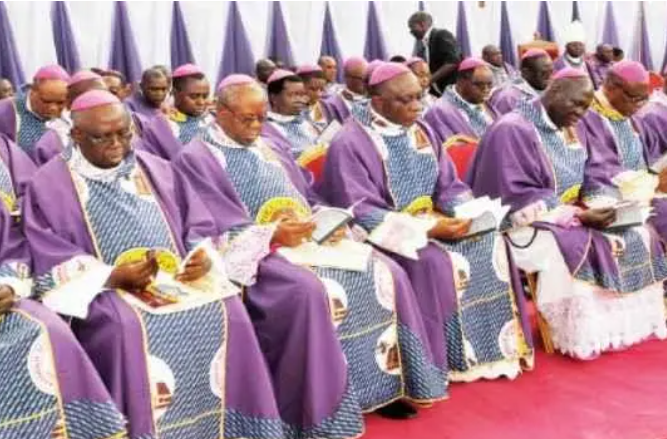The Catholic Church has expressed strong reservations on the potential establishment of Sharia courts in Southwest Nigeria, warning that such a development could trigger conflicts, particularly among families of differing religious faiths.
The director of the Mission and Dialogue Department at the Catholic Secretariat of Nigeria (CSN), Rev. Fr. Lawrence Emehel, who dropped the warning at a media parley in Abuja yesterday, stressed the need for legal reforms to honour the region’s religious diversity.
Emehel acknowledged that while the constitution permits Sharia law for personal matters, its introduction must be approached with care to avoid marginalising other religious communities.
“The debate surrounding the implementation of Sharia law in Southwest Nigeria requires clear positioning from the church. The current push for Sharia stems from frustrations with the existing legal framework.
“The church emphasises understanding and trust, recognising that the Southwest is home to a rich tapestry of religious beliefs. Favoring one group over another could precipitate conflict, especially in families with varied faiths,” he said.
He urged caution, stating that while it was important not to overlook the meaningful aspirations of the people, it was also essential to remember that we co-exist as part of a broader society, and the enactment of these laws must ensure that they do not infringe on the rights of others.
“Our identity as Nigerians is fundamental and should not be compromised. Although the constitution protects religious freedom, it is vital to carefully consider any changes to prevent discrimination or exclusion,” Emehel added.
In a related comment, Rev. Fr. Michael Umoh, the national director of the Directorate of Social Communications, stressed the importance of safeguarding genuine religious practices and preventing any excesses that could restrict freedom of faith.
“We witness rampant indecency and indiscipline in our nation, and religion has not been spared. Many individuals manipulate faith for personal interests or employ it in misguided ways.
“If the government proposes measures aimed at instituting necessary checks and balances, this aligns with its fundamental obligation to protect citizens. However, such approaches must be taken with utmost care,” he cautioned.
The event’s convener further highlighted the crucial role of religion in societal development, serving both as a moral compass and a guide for individuals facing life’s challenges.
“While it is commendable for the government to address the misconduct of those exploiting religion, we must ensure that we do not inadvertently discard the valuable principles of faith in the process.”
Also, the director of the Pastoral Affairs Department, Rev. Fr. Augustine Fasiku, lamented the alarming rise in kidnapping incidents, particularly involving clergy members.
“The surge in kidnappings, especially of priests, has become a severe issue driven largely by a desperate quest for financial gain. The church unequivocally opposes such acts, which do not align with our values.
“This challenge extends beyond the church; it is a national crisis that affects us all. We must collaborate to tackle the root causes of this issue, as it impacts the entire nation, with many suffering in silence.
“The church remains vigilant against these atrocities, echoing biblical calls for justice and compassion. It is imperative for all of us to work together to put an end to these grievous acts,” he said.





